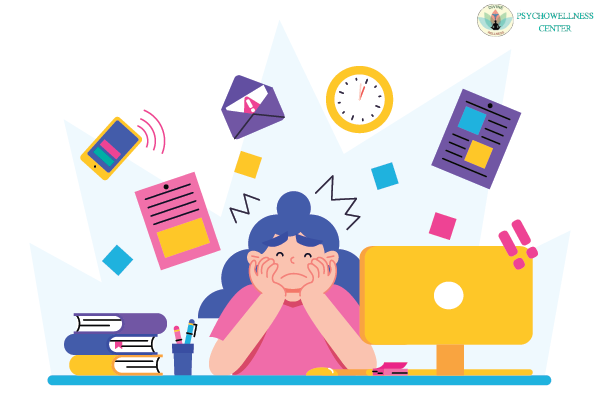Students of all ages are prone to the syndrome known as school anxiety. It shows up as an exaggerated fear of going to school and the associated activities with that, such as making friends, speaking in front of groups of people, or taking and passing tests which are the part of the curriculum. Regardless of age, grade level, or academic success, any child might experience school-related anxiety. Some students experience it to the point where it makes it difficult for them to learn and function in class.
Anxiety about school is harmful for kids and heartbreaking for parents. Even though it happens so frequently, it doesn’t always look the same. It will occasionally hide itself as illness (headaches, stomach aches), a temper tantrum, or violent rejection, and other times it will appear exactly as you’d expected that to be.
What is school anxiety?
Concern and fear about attending school are examples of school anxiety. Medical professionals may also call it “school phobia” or “school rejection.” Children with school anxiety experience extremely high levels of fear and worry over regular attendance, despite the fact that it is usual for kids to experience some anxiety before starting school or attending a new school. Their ability to attend courses or perform well in school may be affected by all this. Get guidance from the top therapist by searching for the Best psychologist near me or Best psychologist delhi.
It is not accepted that refusing to go to school is a mental condition. However, this symptom can be connected to a number of different disorders, according to the Diagnostic and Statistical Manual of Mental Disorders, Fifth Edition (DSM-5) which might include the following:
-
Depression
-
Generalized Anxiety Disorder
-
Specific Phobia
-
Oppositional Defiant Disorder
-
Post-Traumatic Stress Disorder (PTSD)
-
Social Anxiety Disorder
Parents, guardians, teachers, and school administrators may find it difficult to deal with their children’s school refusal. It might be challenging to manage at times and may call for a team effort. Furthermore, given that it can have a significant impact on a child’s social, emotional, and academic development, it is essential to take action to treat it as soon as possible. Additionally, it becomes more difficult for a youngster to return to class the longer they are absent.
Causes of school anxiety
The reasons for school anxiety are not fully understood by mental health professionals. Some children’s primary causes of the anxiety and fear associated with school anxiety are being bullied or having a bad school experience. Others may experience anxiety that is more widespread and linked to social or performance issues. Children who have spent a lot of time at home, such as during the summer or due to illness, may experience anxiety. The illness can also be brought on by stressful situations like moving to a new house or losing a family member.
Signs and symptoms of school anxiety
School anxiety symptoms can vary and might be behavioral, emotional, or physical.
Some physical signs include:
-
Stomachaches
-
Headaches
-
Fast heartbeat and vertigo
-
Sweating and
-
shortness of breath
Among the emotional signs are:
-
Fearfulness
-
Worry
-
Irritability
-
Sadness
Behavioral signs could be:
-
Refusing to attend classes or school
-
Skipping classes a lot,
-
Throwing tantrums, and
-
Crying spells
-
To attempt to stay at home, try claiming to be ill.
Managing school anxiety
Self-care is important.
Getting enough sleep, exercising frequently, and eating healthy, nutritious and balanced meals all assist to reduce the negative impacts of stress. By including them into their family schedule, parents of younger children can serve as role models for these activities.
Learn effective coping mechanisms.
Yoga, deep breathing exercises, and mindfulness meditation are all beneficial techniques for managing anxiety. These can be taught by a good Counseling psychologist or the Best psychologist in India.
Prepare everything before
Ask the school’s guidance counselor for assistance if the student is younger so that issues can be discussed before.
Stop using social media.
Whether its leisure time or some free time, spend that time reading a book together, make sure your child has regularly scheduled time away from screens and gadgets. Social media use and extended screen time have a negative influence on their wellbeing.
Speak to a professional.
Consult a psychologist who specializes in school-related anxiety if your child’s anxiety persists and affects his or her ability to develop emotionally and academically. The faster kids learn constructive coping mechanisms for anxiety it will make them cope with all the difficulties that they will face in their later life.
When to get assistance
If a child repeatedly skips school or refuses to go to school, it is imperative to seek professional treatment. School refusal can harm a child’s academic and social growth, and it gets harder to treat as time goes on. If the child’s anxiety is significantly affecting their everyday lives or giving them substantial discomfort, it is also important to get support from a mental health professional. Depression, substance use disorders, and social isolation can result from untreated anxiety. Seek help from an Online counselor or Therapists in delhi.
Additionally, you may schedule an appointment with the top professional psychologists and receive Mental health counseling at the Psychowellness Centre, which has many locations in Delhi NCR, NOIDA, Faridabad, Janakpuri, Dwarka, and Vasant Vihar.
Contribution: Dr (Prof) R K Suri, Clinical Psychologist, life coach & mentor TalktoAngel & Dr. Sakshi Kochhar, Psychologist.

